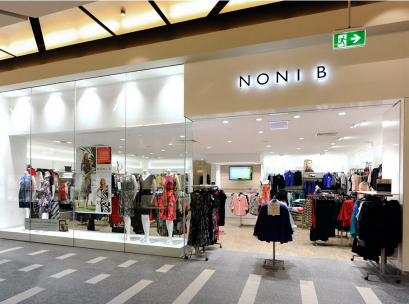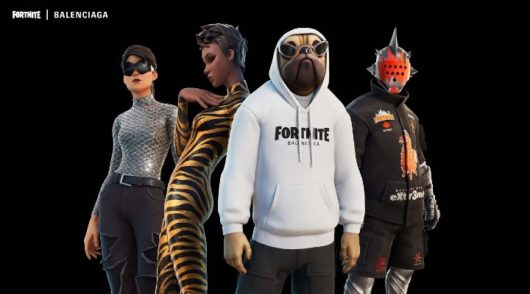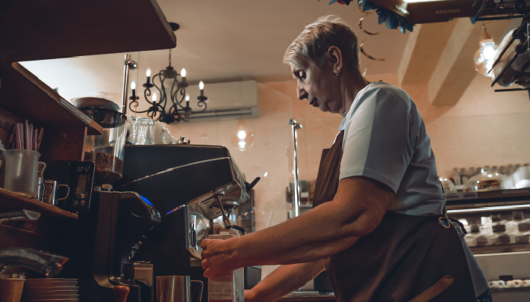 Retailers trading within Australia’s beleaguered women’s fashion category may be preparing for a year of redemption after a difficult 2017, but for Noni B CEO Scott Evans, the year ahead is much more about improvement than turnaround.
Retailers trading within Australia’s beleaguered women’s fashion category may be preparing for a year of redemption after a difficult 2017, but for Noni B CEO Scott Evans, the year ahead is much more about improvement than turnaround.
The women’s fashion chain announced last week that it opened another 28 stores in the first-half of FY18, bringing its total to 642 at a time when its peers – such as Specialty Fashion Group, Myer, Premier Investments and soon-to-be-transacted Oroton Group – are all looking to consolidate to preserve profitability amid subdued trading conditions and onerous rent payments.
Noni B’s like-for-likes were up three per cent on around $190 million in total sales for the six months ended 31 December, making it a notable exception to the swathe of market disappointments in women’s fashion over the last 18 months.
In comparison, department store Myer’s share price has started the year at a record low, following a trading update in early November which outlined a 2.1 per cent declined in comparative sales in Q1 and poor trading in the first weeks of December.
Both Specialty Fashion Group and Premier Investments’ legacy brands booked declining comparable sales for FY17 and signalled weakness in initial FY18 trading, while Oroton is technically still in the hands of administrators following its collapse late last year.
This is despite gaining momentum in the category, with clothing, footwear and personal accessory retailing rising by 1.6 per cent (seasonally adjusted) last November according to data from the ABS last year.
However, it appears clear that not everyone was able to get an equal slice of the pie, with some clearly looking to be more aggressive in 2018 than others.
“We’re going to continue to be aggressive on store roll-out,” Evans told IRW, shrugging off onerous rental provisions when asked.
“I think we are [negotiating well], we’re fairly diligent and do a lot of research – we know where we want to be and its paid off so far, so I see no reason why that wouldn’t continue.”
For Evans, the key to Noni B’s success (across the Noni B, Rockmans, W.Lane and Beme brands) has been its distinct approach to its store portfolio, which is largely semi-regional, skating around the high rents associated with metro centres.
“We’re in local shopping centres, not the Bondi Junctions of the world and that’s a key advantage for us, because when our customer goes to Coles or Woolworths, she sees us,” Evans said.
He praised retailers like T2, who, he said, despite just selling tea, have managed to provide a unique experience that goes beyond product.
“Ten years ago when I came to Australia, everything was about the garment, but today it’s an equal competitor and there’s emotional engagement and experience with the brand – it’s not just putting garments in the shop anymore,” he explained. “We have to be receptive to that changing world, and if we can keep carrying on improving that experience and beating [our customer’s] expectations, we’ll fare well. If not, it will get tough.”
The year ahead for Noni B will be about improving experience and investing in online, which grew to 4.9 per cent of total sales in the first-half after increasing 84 per cent in FY17.
Online is growing strongly for most major fashion retailers and has driven optimism for strategies predicated on store closures for the likes of SFG and Myer.
“Do I think we’re great at online? Not at all. Do I think we’re improving all the time? Yes,” Evans said. “Online is a changing world all the time, so we have to keep up.”
Middle will continue to hollow out
But despite optimism from some that discretionary spending may pick up this year, IBISWorld’s senior retail industry analyst Kim Do has predicted that the middle market of women’s fashion will continue to hollow out in 2018, as shoppers look for either discount fast fashion or high-end luxury goods.
“One of the main factors is market polarisation among consumers, either fast fashion or at the other end luxury, and because the likes of Myer and SFG fall in the middle, they’re not generating sales,” Do explained.
IBIS expects struggling brands to look towards personalisation in the future, a tactic to differentiate themselves in the middle market.
“Consumers just want either their name on something or something that fits them perfectly, reflecting their own style – and those brands already personalising are taking advantage,” Do said.
“If retailers compete on price alone, they’re unlikely to survive – more retailers are recognising this though, and we’ve seen them offer things like brand value to generate that loyalty.”
This content first appeared in Inside Retail Magazine, subscribe via the link below.
Access exclusive analysis, locked news and reports with Inside Retail Weekly. Subscribe today and get our premium print publication delivered to your door every week.





